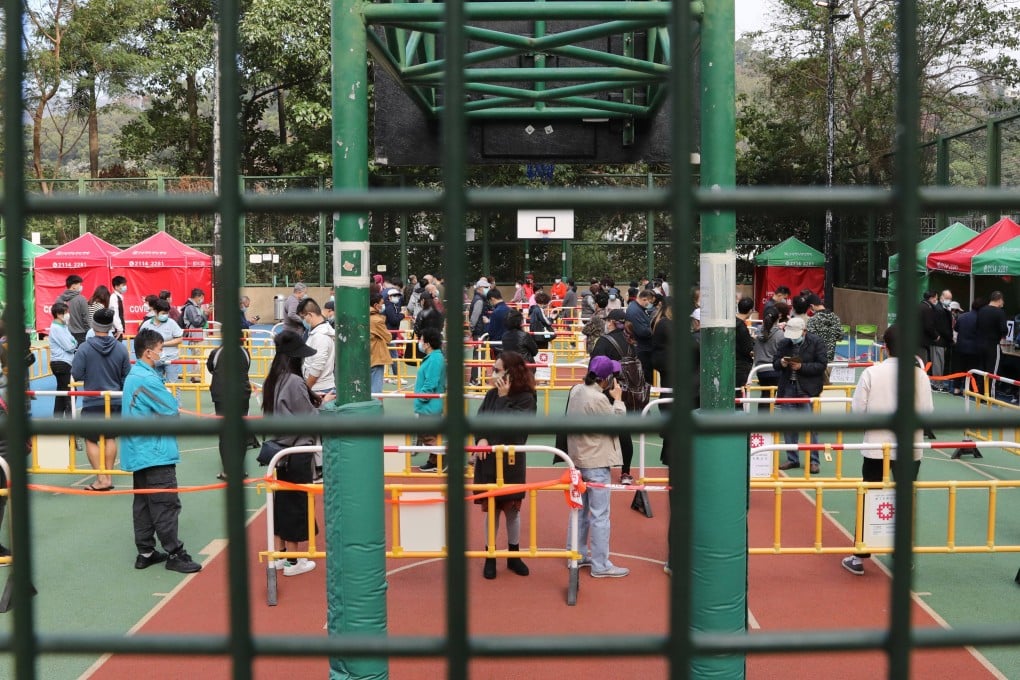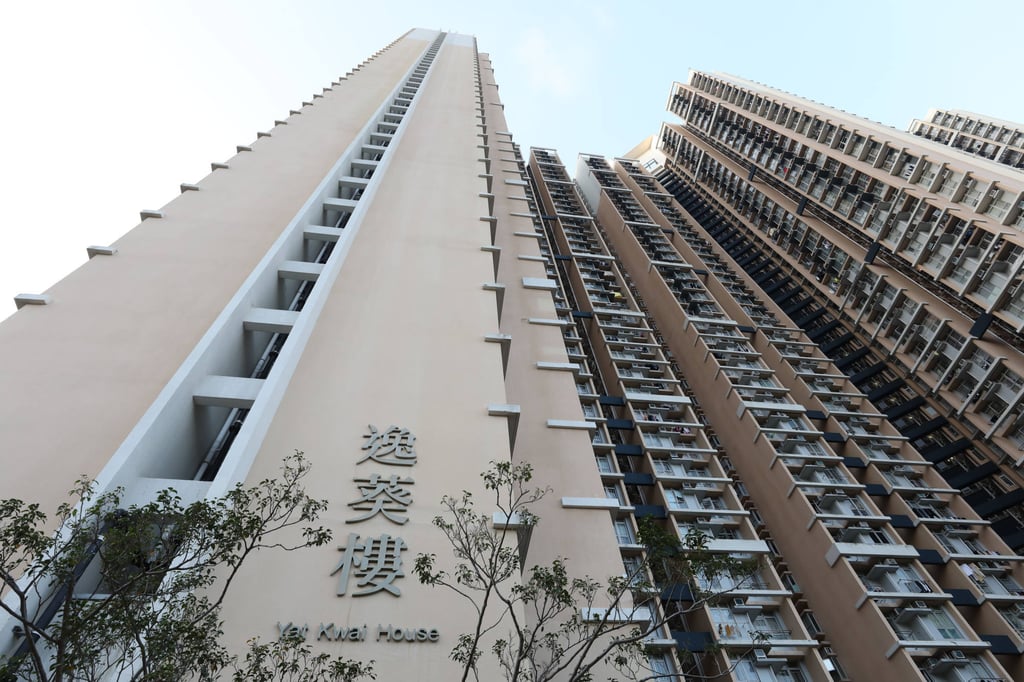Omicron: 2,700 residents of coronavirus-hit Hong Kong housing block face unprecedented 5-day lockdown
- Residents of Yat Kwai House at Kwai Chung Estate will need to be home quarantined for five days, health chief says
- Health authorities confirm 24 new coronavirus cases citywide, 18 of which were locally transmitted including two untraceable infections

Hong Kong authorities have placed about 2,700 residents of a coronavirus-stricken public housing block under lockdown for five days in an unprecedented move to prevent the further spread of the highly infectious Omicron in the community.
Residents of Yat Kwai House at Kwai Chung Estate caught up in the “high-risk, superspreading event” would have to be home quarantined until Wednesday – the longest lockdown so far – and would be provided with food and other necessities, health minister Sophia Chan Siu-chee announced on Friday evening.
The number of cases in the block of flats had risen to 20, including preliminary-positive infections, by Friday afternoon, in a growing transmission chain started by a cleaner suspected to be the Omicron superspreader.

“We understand with this operation, people might feel there is some inconvenience such as not being able to go to work,” Chan said.
“We really appeal to employers if they have employees caught in this operation that, I hope, they will treat this in a more open and understanding manner so they won’t deduct people’s salary and things like that.
“The most important aim is really to identify or detect cases within the building, and secondly we want to stop the transmission chain from going further, therefore this is for the common good.”
Chan said evacuating everyone from the affected block was not necessary because the outbreak was related to environmental contamination, not building structural issues.